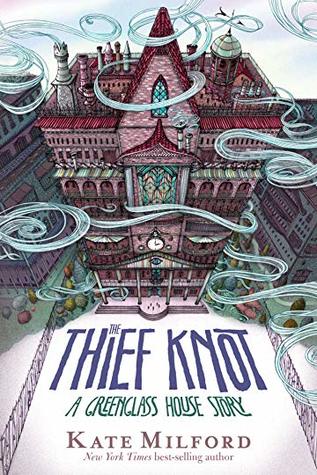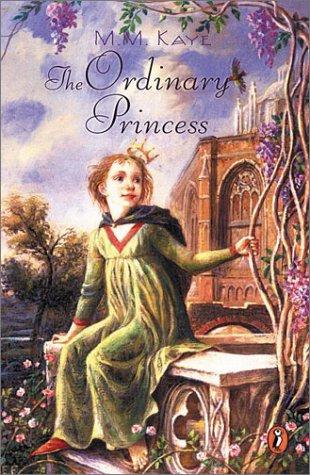[button color=”black” size=”big” link=”http://affiliates.abebooks.com/c/99844/77798/2029?u=http%3A%2F%2Fwww.abebooks.com%2Fservlet%2FSearchResults%3Fisbn%3D9780486415864″ target=”blank” ]Purchase here[/button]
Great Expectations—buy it
by Charles Dickens—Wiki him
Recommended Ages: 13+
There was a time in the British Commonwealth when crimes that would formerly have been punished by death were commuted to a sentence of “transportation.” This is to say, the convicted criminals were packed into prison-ships and banished to Australia, to become forced colonists. There they led such a hard life that only the toughest succeeded—but even the most successful colonials would have gone home to England, if they could have. And that’s why the second half of their punishment was an automatic sentence of death if they ever came back.
It is at this time in history, in a village close to the marshes along a stretch of the Thames River where the prison-ships anchored, narrator “Pip” cites his earliest memories. He begins his adventures while still a small orphan boy, terrorized by the older sister who has “brought him up by hand,” and comforted only by the affection of an earthy, humble brother-in-law, a blacksmith named Joe. One day young Pip falls into the clutches of an escaped convict hiding in the marshes. Trembling under the convict’s threats, the boy steals food from his sister and a file from Joe’s forge and brings them to the manacled escapee. And though his conscience torments him, and he fears being found out as a thief and accomplice to a fleeing criminal (at least, until the convict is recaptured), Pip does not realize until years later how much this encounter will shape his life.
Meanwhile, an eccentric but rich lady named Miss Havisham sends for Pip, requiring him to play with her adopted daughter Estella. Pip is at once struck by Estella’s cold beauty and upper-class pride. Once it becomes clear that Estella will always be the love of Pip’s life—and an unrequited love at that—Miss Havisham pays him off by buying him an apprenticeship to good, honest Joe. But by this time, the seeds of discontent have been planted: discontent with the life of a village blacksmith. Pip now dreams of being a gentleman. He swears that he can never love any woman but Estella—even though she makes him miserable. With his ambitions set higher than his place in life, he does injustice to his true friends and passes on a good, caring girl’s offer of love. And when a London lawyer announces that Pip has been named as the heir of a mysterious person of property—that the lad has what one may call “great expectations”—Pip abandons his home place and people in pursuit of his selfish dream.
During his years of education and young manhood, Pip does little credit to the honest, sensible folk who brought him up. He racks up big debts. He leads his best friend, schoolmaster’s son Herbert Pocket, into wasteful habits. He falls among ill company, such as the thuggish Bentley Drummle. And he lets the unspoken assumption that Miss Havisham is his patron lead him to the assumption that he is intended for Estella. After having committed his heart and his credit in the most reckless way possible, he finds out that his “great expectations” are actually founded on—well, not wanting to spoil it for you, I’ll only say that it isn’t Miss Havisham. Rather, it’s somebody whose presence in England puts him in jeopardy of death, for the reasons stated above. And that means young Pip must face the fact that he has, all along, been entirely and hideously wrong.
Pip’s narrative of his “great expectations” is not the steadily-upward, through-adversity-to-greatness, coming-of-age-novel-hero’s expected path. It is, in fact, a guilty confession by a young man who misjudged everyone, especially himself. And only when adversity has crushed his ambitions, ruined his fortunes, and brought him back to his humble beginnings, does he begin to go the right way. Not the way of effortless leisure and luxury in which the characters in novels at that time were expected to live, move, and exist; but the way of hard, honest work for a modest living, a disappointing outcome for most of his boyish dreams, and at best an ambiguous ending to his lifelong romance with Estella. It’s a thought-provoking story in which money—not just the lack of money or the need for money—is the cause of all problems; in which a man’s life (not to say his character) proves to be better after he has lost it all; and in which the most surprising plot contrivance is the lack of any plot contrivances, allowing the ending to embody the natural outcome—for the most part—of what has gone before. Happy, sad, or mixed, it is an ending that will touch and move you, if anything can.
The thirteenth of Charles Dickens’ fourteen novels was first published in weekly installments in 1860-61, in magazines on both sides of the Atlantic, then as a three-volume book later in 1861. Since then it has become one of Dickens’ most loved and well-known works, frequently filmed and dramatized, and esteemed among the highest achievements of English literature. And yet it took me some ten years to get around to reading it, after a tear-bespattered copy of A Tale of Two Cities ignited my enthusiasm for the novels of Dickens. At this writing, only one Dickens novel remains that I have not read. It is strange that I should have left this one almost for last. I cannot explain why I hesitated. Perhaps I was turned off by a bad movie adaptation. Perhaps there was something in the dust-cover synopsis that left me cold. Or perhaps I instinctively wanted to save the best for last (or next-to-last). Although I have found delight in nearly all of the Dickens novels I have read in the past ten years, this is the only one that has risen to the same height of near-perfection and concentrated, high-powered genius as A Tale of Two Cities.
I am indebted to audio-book reader Simon Prebble, not only for contributing his expressive and versatile voice to the characters and narrator of Great Expectations, and so helping me overcome my shyness of this masterpiece, but also for concluding with a vocal footnote in which he explained why Dickens changed the ending of the novel during the proofs stage of its publication, and then actually read the original ending. If this novel has one major flaw, it is the revised ending in which, abruptly and out of continuity with the character of what has gone before, Pip and Estella end up together. Only one thing is needed to make this one of the Perfect Novels: imagining that it ends as Dickens originally wrote it.




